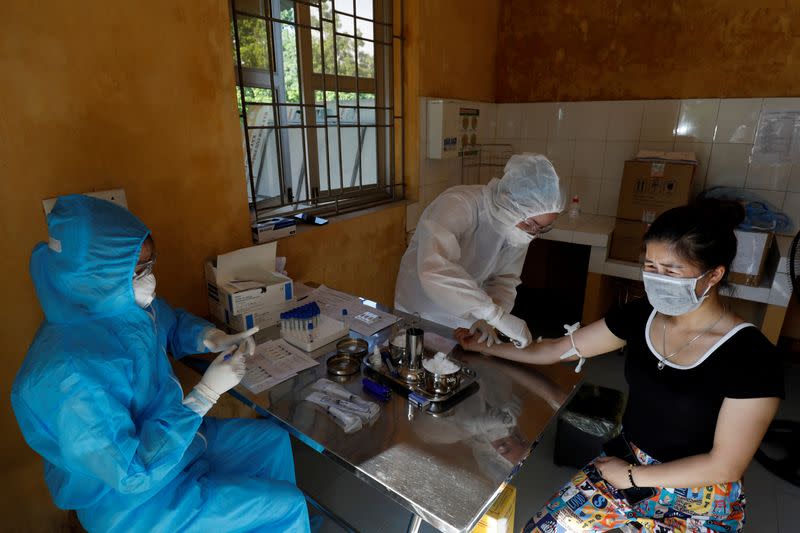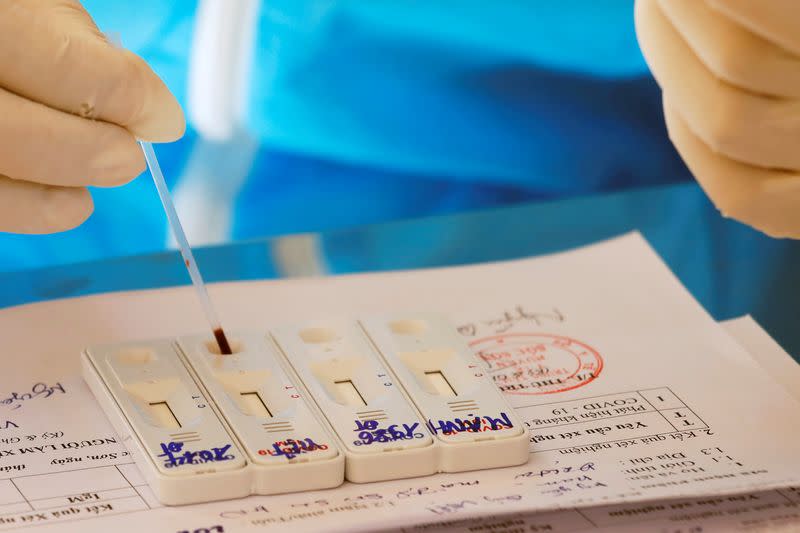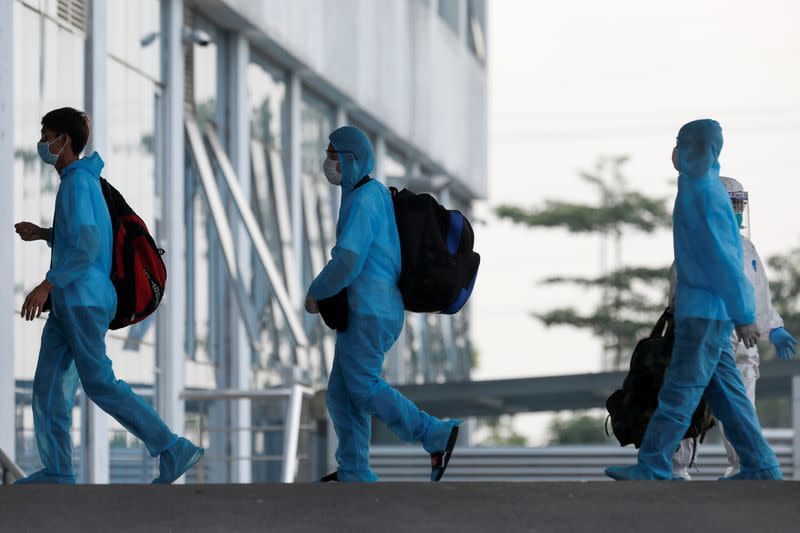Vietnam redeploys tracing system in 'full force' to halt new virus contagion
By Phuong Nguyen and Khanh Vu
HANOI (Reuters) - Vietnam began mass coronavirus testing in the capital Hanoi, banned gatherings in its economic hub and urged tens of thousands of domestic travellers to report to authorities on Thursday, as the country scrambled to contain its first outbreak in 100 days.
Text messages were sent to all cellphones used by the country's 95 million people urging anyone who visited the popular coastal city of Danang in July to come forward, after a new wave of the virus spread to six cities and provinces in as many days, with 47 positive cases.
Hanoi's ruling body started the testing of some 21,063 residents who recently returned from Danang, a central holiday getaway that has been a big draw for domestic travellers since restrictions were eased.
The southern commercial centre Ho Chi Minh City followed Hanoi on Thursday in shutting entertainment venues and banning gatherings after two people tested positive among 18,000 residents who were recently in Danang.
The latest response is in line with a centralised quarantine programme and aggressive testing and contact-tracing system https://reut.rs/33bzsnU that saw Vietnam lauded for keeping its coronavirus tally to just 464 cases since late January, with no fatalities.
By comparison, neighbouring Philippines on Thursday reported nearly 4,000 new cases in a single day.
Fourteen new Vietnamese cases were confirmed on Thursday, all but one in Danang or nearby Quang Nam province, home to the old city of Hoi An, another popular tourist site.
A strict lockdown has been imposed in Danang and passenger flights halted for 15 days.
RACE AGAINST TIME
Hanoi moved fast to try to prevent a contagion, setting a deadline of Saturday to test anyone who visited Danang recently.
"We have to use full force to test all 21,063 returnees," city chairman Nguyen Duc Chung said.
"All must be done in three days."
Danang has been inundated with visitors taking advantage of promotions to revitalise a tourism sector hurt by border closures and international flight bans designed to keep the virus out.
The current wave is traced to Danang, but the source is unclear.
One case, an American, showed symptoms as far back as mid-June, suggesting the virus may have quietly spread in Danang for several weeks.
Some experts say Vietnam could be paying for complacency after stopping the spread, with normal service quickly resuming, facemasks used less and domestic travel activity surging.
Local scientists believe the coronavirus strain in Danang is more infectious than the strain found earlier in the country.
(Reporting by Phuong Nguyen and Khanh Vu; Writing by Martin Petty; Editing by Ed Davies and Hugh Lawson)

 Yahoo News
Yahoo News 





